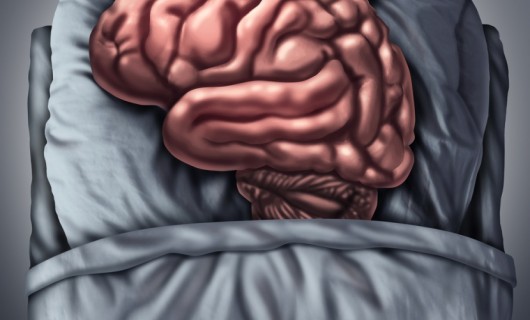Sleep for success, health and happiness (posted on 08.02.2018)
The Power of Sleep
Sleep is something we do without much consideration. It is one of those things that that we know we should do a bit better – a bit like nutrition and exercise – but we seem to be managing OK anyway.
The main reason is that we don’t truly understand what goes on when we sleep, the role sleep plays in our mental and physical health, and how to genuinely get a good night’s sleep. However, the pace of modern living can be swift and relentless! Sleep is often sacrificed in an effort to keep up with the heavy demands of our daily schedules both at work and home. In fact, it’s estimated that we’re now sleeping 20% less on average than we were as a population in the 1960’s; the average Briton gets 6.5hrs sleep a night (which classifies as sleep deprived). The latest UK research estimates that around 200,000 working days are lost from sleep deprivation, costing the economy a massive £40bn a year.
It also appears that our attitude towards sleep has altered, with sleep often viewed as a nuisance throwback to our caveman days and decried “a waste of time”. Have you ever heard a colleague or friend talk of their awesome health and fitness regime, and in the same breath boast about how little sleep they get? The fact is, we are programmed to sleep 1/3 of our lives so there must be a pretty good reason for that. Research is demonstrating just how critical sleep is to overall mental health and wellbeing. The evidence has never been so convincing – when you shave time off your sleep what you’re really sacrificing is your ability to perform at your peak – mentally, physically and emotionally. Prof David Schyner, University of Texas states that “changes in sleep can create system wide changes in the organism, and all of the stages of sleep affect the entire body and brain”. It’s why sleep deprivation is so strongly linked to disease and longevity.
So instead of viewing getting enough sleep, and generally speaking by enough we mean seven and a half hours to nine hours a night, as ‘unproductive’ time or a luxury, try viewing it as extremely productive time because once we are getting good quality sleep, our working days can also be much more productive, and positive. It plays a fundamental role in how we show up at work, and at home, as our best self.
Of course, it is not always possible to get a good night sleep, especially if you have the pitter-patter of tiny feet at home or travel internationally on a regular basis, but if, like me, sleep can sometimes be elusive there are things that we can do that with practise can soon have you sleeping like a baby (one that sleeps through the night that is!!).
10 helpful tips for better sleep:
- Have a brain dump before you go to bed by writing down tomorrow’s tasks.
- Limit alcohol intake and try and not drink any at least two hours before bed.
- Ban all iPhones’, iPads’, iMacs’ etc. from the bedroom. Major brain stimulation!
- Ask yourself is the task that you are doing at 11pm, such as surfing Facebook, really essential?
- Have a cut off time for last work e-mails, ideally at least an hour before bed.
- Have a small snack (such as cottage cheese on ryvita) an hour before you go to bed if you find it is hunger that is waking you up in the early hours.
- Make sure you are getting enough exercise or movement during the day.
- Practise mindfulness or meditation before bed.
- Exposure to daylight helps set the brain up for sleep at night, but the same is not true for bright internal lights. Try softer lighting towards bedtime.
- Be consistent with your bedtime ritual. An hour before midnight is worth two after.
For me, when ‘busy brain’ hits at 3am, I now count backwards from 99. The first time I tried this I only made it to 91 before I have drifted back to the thoughts that woke me up in the first place. As soon as I became aware I had drifted, I started again and probably only made it to 85 the time after. And so on. The more I have practised this, the more I have become better at keeping my focus on the counting, and more often than not the next thing I know the alarm is going off at 7am and I feel ready to start the day. Different things work for different people. Be consistent and persistent.
Happy snoozing
Louise

Follow Us...